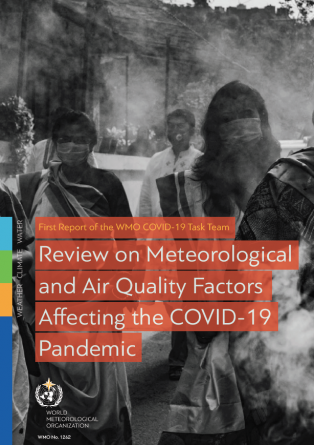World Meteorological Organization SARS-CoV-2/COVID-19 Task Team has issue its first report on meteorological and air quality (MAQ) factors affecting the COVID-19 pandemic on 18 March 2021 in Geneva. CCOUC Director Prof Emily Chan is a member of this international task team of 16 of experts in earth, medical and public health sciences.
The Task Team found that COVID-19 transmission dynamics in the past year appeared to have been influenced primarily by government interventions such as mask-wearing mandates and travel restrictions rather than meteorological factors. Other relevant drivers included changes in human behavior and demographics of affected populations, and more recently, virus mutations. Hence, the team warned that the onset of higher temperatures in the northern hemisphere since spring should not be used as a basis to relax public health measures to halt the spread of the virus.
The Task Team report provides a summary of key findings on MAQ factors published by the first week of January 2021. A combination of direct impacts on virus survival, impacts on human resistance to infection, and indirect influence of weather and season via changes in human behavior may be at work to drive seasonality of respiratory viral infections, potentially also COVD-19. Laboratory studies of SARS-CoV-2 have yielded some evidence that the virus survives longer under cold, dry and low ultraviolet radiation conditions. However, these studies have not yet established if there was meaningful direct meteorological influences on COVID-19 transmission rates under real world conditions.
The interdisciplinary and international Task Team was established by WMO’s Research Board in order to provide a rapid summary of the state of knowledge regarding potential meteorological and air quality influences on COVID-19 dynamics.
